
BUILDING THE
START-UP DREAM TEAM
The Big Spark
The success or failure of start-ups often hinges on the robustness and makeup of the team. While ideas and funding play pivotal roles, the secret sauce lies in a team of individuals who possess the ability to turn visions into reality.
Six leaders in the start-up ecosystem talk about what it takes to assemble and nurture a team capable of steering a start-up to success. As seasoned entrepreneurs, they delve into the intricacies of maintaining balance and cohesion within the dynamic start-up environment. Their perspectives provide valuable lessons for aspiring visionaries looking to assemble their own dream teams.
EVOLVE THE TEAM AS YOU GROW
Mr Lim Wai Mun, the founder and CEO of health-tech start-up Doctor Anywhere, and judge of The Big Spark reality TV show, highlights the importance of adjusting the team’s makeup through different stages of an organisation’s growth. In the initial product ideation phase, Mr Lim leans towards versatile generalists who can adapt to various roles, be it in product development or business strategy.

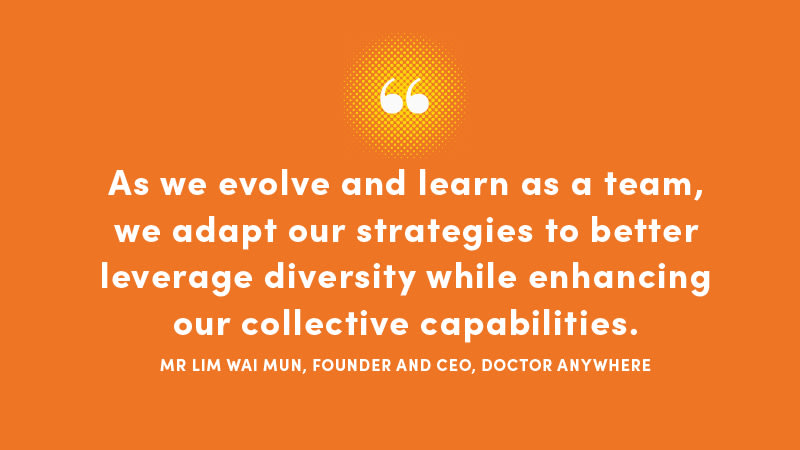
As the start-up scales, the focus shifts to industry insiders with specific expertise to refine the product and expand its reach. In the final maturity phase, Mr Lim emphasises the need for subject matter experts and encourages hiring “resident entrepreneurs” to drive innovation and transformation within the company.
Balancing diverse skillsets and perspectives is also crucial. “Start-ups need to focus on aligning individual, team and company objectives to create a cohesive environment that respects and considers diverse viewpoints,” he said.
To groom talent, Mr Lim identifies high-potential employees and exposes them to various projects across the company.
FIND RESILIENT LEADERS
Ms Roshni Mahtani-Cheung, group CEO and founder of parent-tech company The Parentinc, stresses the importance of finding leaders and members with a growth mindset, who are able to embrace challenges and bounce back from failures. “This perspective promotes resilience, allowing leaders to navigate uncertainties and setbacks with a positive outlook, and come out with positive results,” she explained.

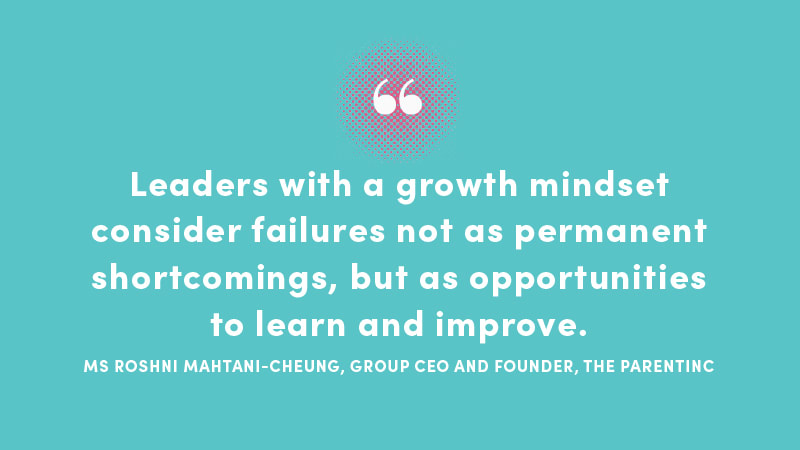
To build her dream team, the judge of The Big Spark is personally involved in the hiring for leadership positions, looking for individuals who are in sync with the company’s vision. “Besides having mutual respect, we need to jive well together and be comfortable brainstorming and strategising with the larger team, while still being able to unwind with a glass of whisky at the end of the day,” she shared.
The Parentinc also conducts monthly sessions where managers learn from colleagues and guest speakers, as part of an effort to develop the skillsets of team members.
DON’T FORGET ABOUT PASSION
Venture capitalist and co-founder Anuj Golecha advises new start-ups to focus on building a core team with diverse and complementary skills, coupled with a fierce dedication to the company’s mission. “A shared commitment to the start-up’s mission and a collective sense of ownership are traits that contribute to a strong and cohesive team,” he said.
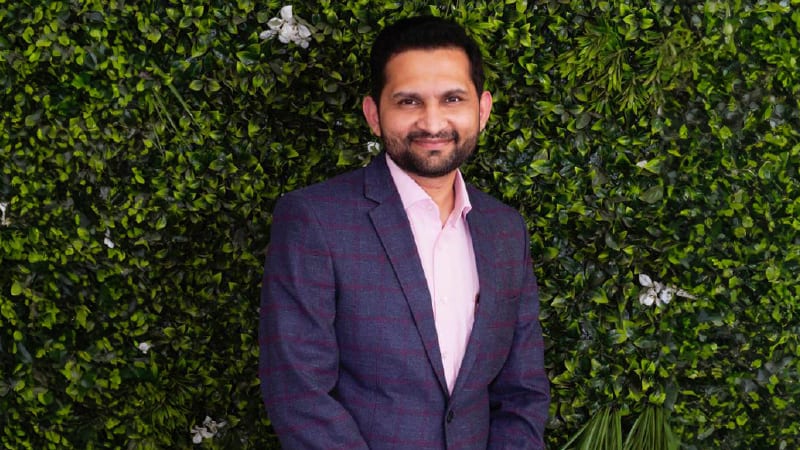
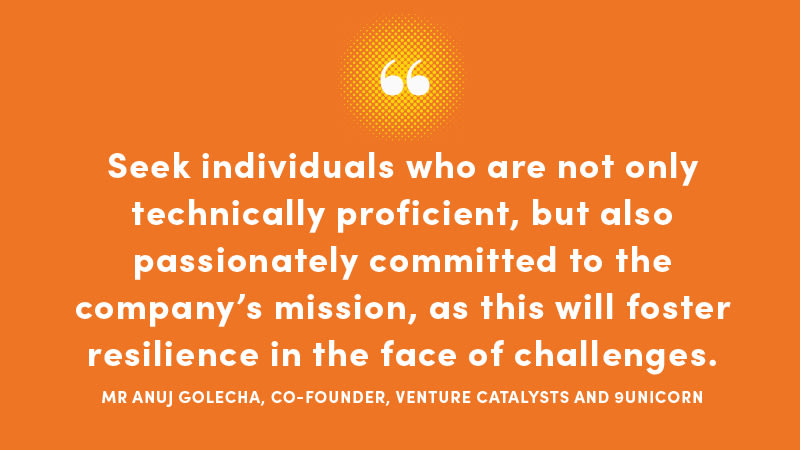
Mr Golecha shares that trust among team members is equally essential, as it cultivates an environment where individuals feel empowered to take risks and contribute their own unique perspectives.
Building diversity within start-up teams is also critical, as this often plays a role in investment decisions. According to Mr Golecha, research has consistently shown that diverse teams tend to outperform homogeneous teams in terms of decision-making, problem-solving and overall business performance.
As a result, investors actively scout for start-ups with inclusive teams, employing it as a dipstick to gauge the company’s resilience, adaptability and potential for long-term success.
HIRING FOR THE LONG HAUL AND EXERCISING DECISIVENESS
Mr Amit Gupta, group CEO of tech consultancy Ecosystm Group, acknowledges that assembling a dream team amid a fast-changing business landscape can be challenging. As such, he advises start-ups to hire with the company’s long-term vision in mind, taking into account the potential of candidates to grow into future roles. This approach will help avoid misalignment between team members and address the evolving needs of the company.
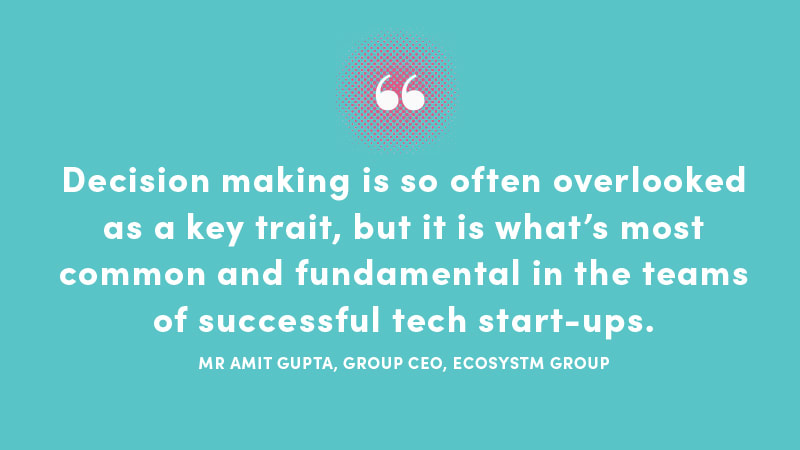

“Faced with tight timelines, it can be very tempting to hire someone capable of helming immediate tasks and sideline the consideration of long-term processes,” he said, elaborating, “We should keep in mind that the life cycle of companies is much more compressed today. A sales lead of a pre-series A start-up may not be able to function as the sales lead of a series C start-up and this could happen in a short timeframe of between one to two years.”
Meanwhile, Mr Gupta identifies quality decision-making as the most important trait for start-up team members. Faced with constant change and rapid growth, teams must be capable of making effective decisions daily. “Decisiveness fosters the growth of a company and contributes to a resilient culture that navigates changes successfully,” he shared.
PROMOTE A ONE COMPANY CULTURE
Mr JJ Chai, CEO and co-founder of Rainforest, focuses on three key traits in start-up teams: Grit, founder-market fit and the ability to attract talent. He contrasts this with the hiring mindset of established companies, where the focus is more on role-specific competencies.
Mr Chai’s previous experiences in leadership roles at Carousell and Airbnb in Southeast Asia have taught him the importance of strong core values and shared values in building a cohesive team.

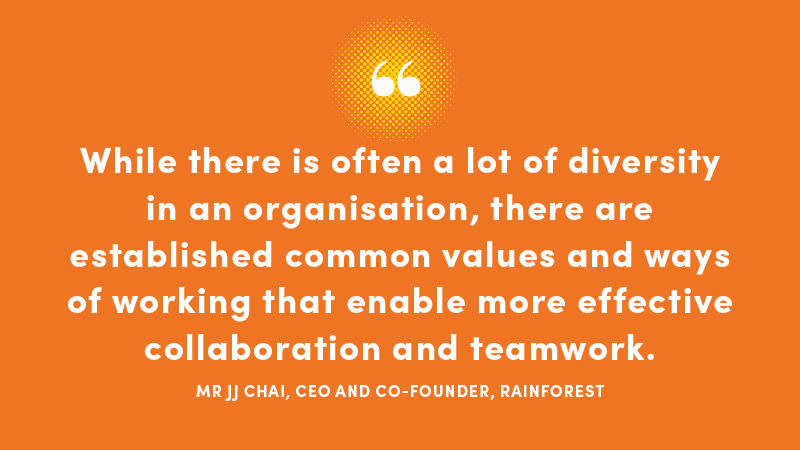
In particular, he advises start-ups to build a ‘one company’ culture with small, flat hierarchies to avoid siloed thinking that can occur in big companies. “As a consultant previously, I noted that leaders who optimise their individual divisions and functions often yield suboptimal outcomes for the larger organisation,” he said.
Mr Chai notes that investment ecosystems such as XA Network, of which he’s a part, can also help start-ups acquire and develop talent by referring quality candidates and sharing best human resource practices from larger tech companies.
FOUNDER ALIGNMENT AND MATURITY IS KEY
Mr Vidit Agrawal, co-founder at fintech GajiGesa and an angel investor in the XA Network, focuses on the relationship among founders when it comes to assessing team dynamics.
“Founders that don’t seem to be aligned or are one-upping each other are common red flags,” he said. Mr Agrawal also believes in the strength of having multiple founders, viewing it as a critical factor in a start-up’s longevity and capacity to overcome challenges.

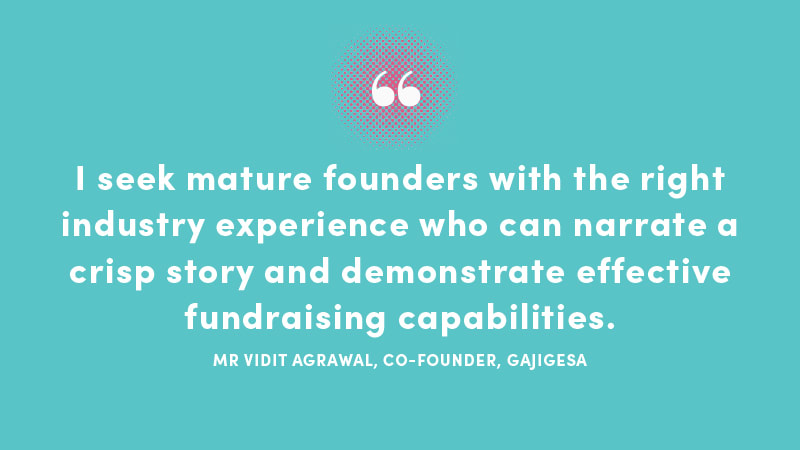
Mr Agrawal identifies effective communication as another fundamental cornerstone. “Transparent communication fosters a collaborative work environment, essential for navigating complexities and achieving shared goals,” he shared.
As a start-up matures, Mr Agrawal advises the organisation to shift from a flat organisational structure to one with more hierarchy and processes. This transition is crucial for managing growing teams effectively. He said: “Hiring the right leadership for every stage of the company’s evolution leads to stability among the teams at all levels.”










